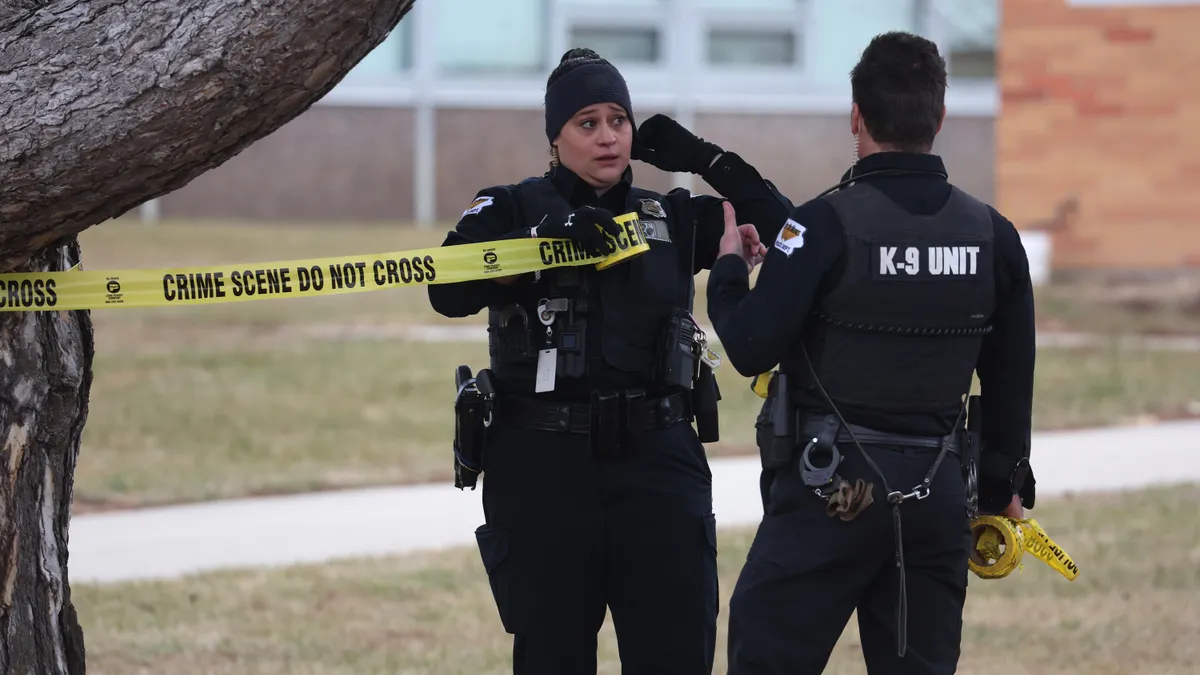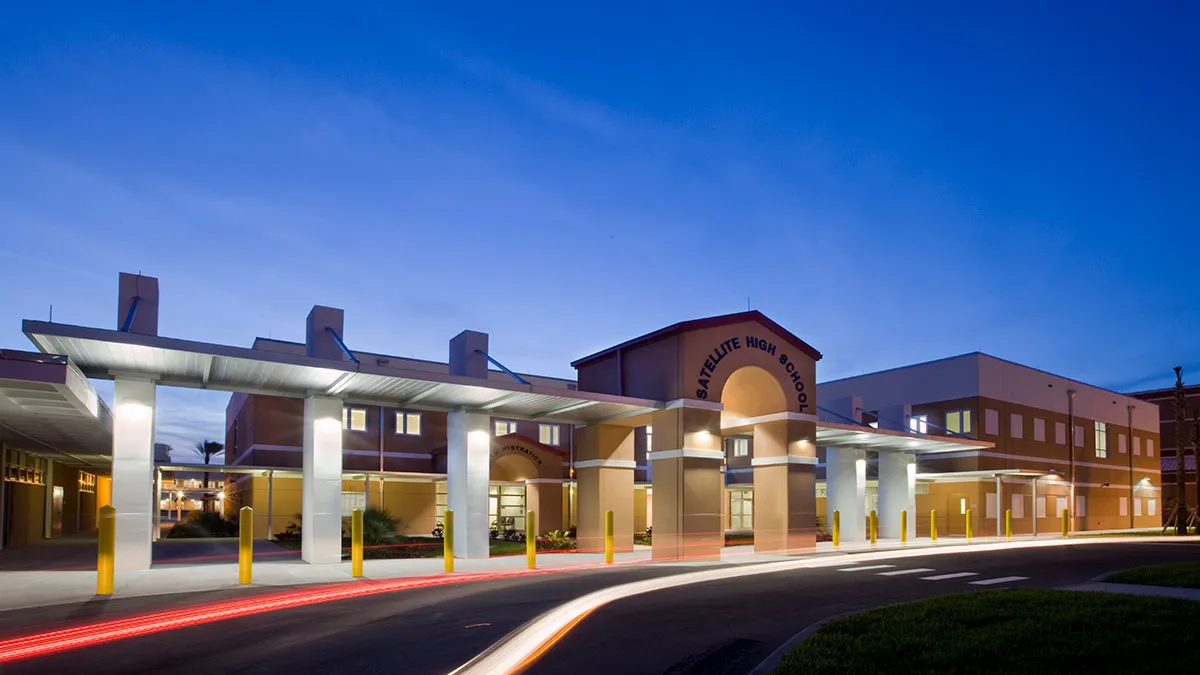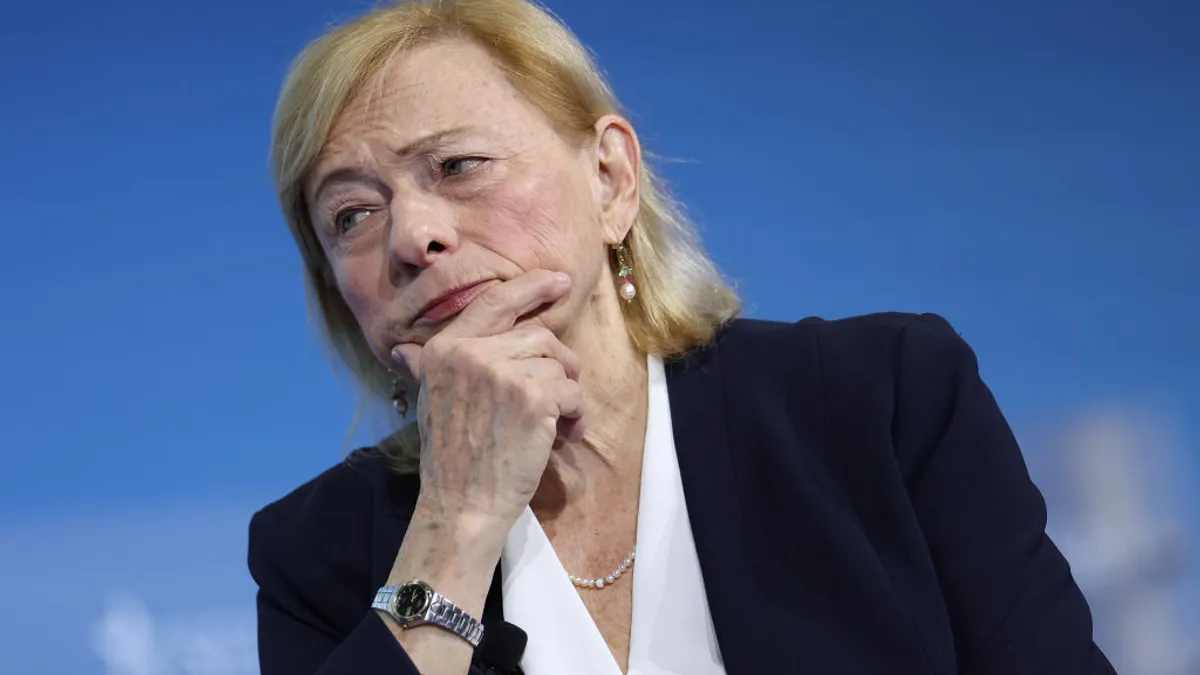Amid education leaders’ growing struggles with school safety issues from gun violence to cyberattacks, the Trump administration recently disbanded a federal school safety advisory board.
During President Donald Trump’s first administration, an interagency effort established the Federal School Safety Clearinghouse, a public website that offers a wide range of school safety resources and recommendations for schools and districts. The clearinghouse was established after the 2018 mass shooting that killed 17 people at Marjory Stoneman Douglas High School in Parkland, Florida.
To build upon that resource, the 2022 Bipartisan Safer Communities Act — passed in response to another mass shooting in 2022 that killed 19 children and two teachers at Robb Elementary School in Uvalde, Texas — led to the creation of the Federal School Safety Clearinghouse External Advisory Board.
But members of the federal school safety board, which met only once in October, received notice of its disbanding via a Jan. 20 memo from Benjamine Huffman, acting secretary of the U.S. Department of Homeland Security, according to two members who got the memo.
The board members were invited by DHS to reapply in the future, according to Ronn Nozoe, CEO of the National Association of Secondary School Principals. Nozoe, appointed to be the board's first chair, said he plans to apply to rejoin the board.
DHS did not respond to a request for comment.
The board had 26 members ranging from school safety experts and education leaders who were tasked with formulating advice and recommendations to improve K-12 school safety and security. A Biden-era DHS announcement from July 2024 said the board members’ broad range of perspectives included “expertise in education, developmental psychology, child and adolescent health, public safety, law enforcement, cybersecurity and emerging technologies, social work, and civil and human rights.”
Taking politics out of school safety discussions
One of the federal school safety board’s members, Tony Montalto, whose daughter Gina was murdered in the Parkland shooting, released a statement on Jan. 24 calling on the Trump administration to “reconstitute” the board.
“America’s schools are critical infrastructure, as defined by the Department of Homeland Security, and school safety is not a partisan issue — it’s a moral imperative,” said Montalto, who is also president of Stand with Parkland, a school safety advocacy group. “As a father who knows the pain of losing a child in a preventable school shooting, I urge the administration to act with urgency and empathy. The lives of our nation’s children and educators are too important to play politics with.”
For Nozoe and NASSP, "this isn’t about politics for us at all. This is about human beings and making sure that kids are safe.”
Though its members came from a wide range of strong positions on school safety, Nozoe said that when the advisory board deliberated, everyone put their personal opinions to the side.
“It was really exciting to be a part of a group like that,” he said, adding that the board “wasn’t all politicked up.” Nozoe said the members were “really just people just trying to express, ‘How can we help?’”
In 2019, NASSP formed the Principal Recovery Network, which brings together current and former school leaders who have gone through tragedies involving gun violence in their K-12 buildings.
Elizabeth Brown, a founding member of the Principal Recovery Network, became the principal at Forest High School several months after a 2018 incident in which a student at the Florida high school was shot and wounded just before his classmates were about to join a walkout and march against gun violence.
For Brown, who is now a principal at Ocali Charter High School in Florida, the federal clearinghouse’s online resources and recommendations are “extremely valuable” as a school leader. The Principal Recovery Network will often lead members impacted by campus gun violence to the clearinghouse resources on schoolsafety.gov, she said.
The network also advocates for federal resources dedicated to proactively supporting students’ mental wellbeing, Brown said.
Brown also agreed that school safety should not be a political issue, adding that she hasn’t heard concerns among school leaders that federal resources to support school safety could be rolled back under the Trump administration. “I believe wholeheartedly that the federal government and our lawmakers will continue to support” school safety initiatives, she said.





















